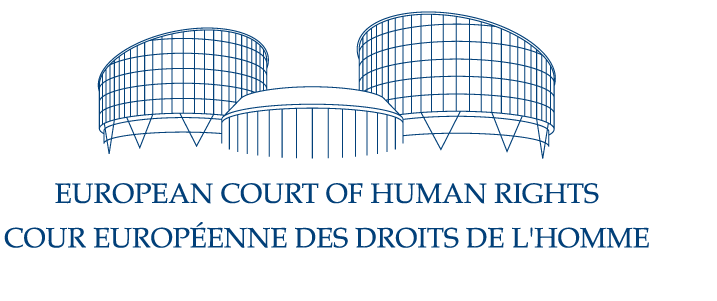Following a detailed examination of the statements made by Demirtaş, the ECHR found that, taken as a whole, they could not be regarded as amounting to incitement to engage in violence,
armed resistance or rebellion, nor did they constitute hate speech.
In today’s Chamber judgment in the case of Selahattin Demirtaş, former co-chair of the HDP (Peoples’ Democratic Party), the European Court of Human Rights (ECtHR) ruled unanimously that Turkey violated Article 10 (freedom of expression) of the European Convention on Human Rights.
The case concerned Demirtaş’s criminal conviction for statements made during a television broadcast. The statements by Demirtaş had essentially urged the authorities and the public to consider the potential role of Abdullah Öcalan, the imprisoned leader of the PKK, in finding a peaceful solution to the Kurdish problem, and had called for an improvement in the conditions of his detention.
Following a detailed examination of the statements in question, the Court found that, taken as a whole, they could not be regarded as amounting to incitement to engage in violence, armed resistance or rebellion, nor did they constitute hate speech. The Court held that the criminal proceedings instituted against the applicant on charges of disseminating propaganda in favour of a terrorist organisation had not met a pressing social need, had not been proportionate to the legitimate aims pursued and had consequently not been necessary in a democratic society.
Principal facts
The applicant, Selahattin Demirtaş, born in 1973, was living in Diyarbakır at the time the application was lodged. The case concerned his criminal conviction for statements made during a television broadcast.
On 20 December 2005 the Diyarbakır public prosecutor charged Demirtaş with disseminating propaganda in favour of a terrorist organisation, following comments he had made by telephone, during a television programme, in his capacity as President of the Human Rights Association and spokesman of the Diyarbakır Democratic Platform.
On 28 September 2010 the Diyarbakır 5th Assize Court found Demirtaş guilty and sentenced him to 10 months’ imprisonment, before deciding to suspend delivery of its judgment for five years under Article 231 of the Code of Criminal Procedure. The Assize Court found that the comments in question were not covered by the right to freedom of expression protected by the Convention, that they amounted to propaganda in favour of the terrorist organisation PKK/Kongra-Gel and that they publicly defended its imprisoned leader, Öcalan, and its members. The Assize Court dismissed an objection by Demirtaş against its decision to suspend delivery of the judgment.
On 29 July 2013 the Diyarbakır 5th Assize Court, taking note of the entry into force of Law no. 6352, decided to set aside its judgment of 28 September 2010 and to suspend the proceedings against the applicant for three years.
Relying on Articles 9 (right to freedom of thought) and 10 (freedom of expression), the applicant alleged that the criminal proceedings against him had infringed his rights under those provisions of the Convention. The application was lodged with the European Court of Human Rights on 23 December 2010.
Decision of the Court
In the particular circumstances of the present case, the Court found that the criminal proceedings in question and the decisions taken in that context to suspend delivery of the judgment and to stay the proceedings had amounted, in view of their potential chilling effect, to interference with the exercise of Demirtaş’s right to freedom of expression.
Next, the Court observed that the interference had been prescribed by section 7(2) of Law no. 3713. It had pursued legitimate aims, namely the protection of national security and public safety and the prevention of disorder and crime.
The Court reiterated that there was little scope under Article 10 § 2 of the Convention for restrictions on political speech or on debate on matters of public interest. Where the views expressed did not constitute incitement to violence, the Contracting States could not restrict the right of the public to be informed of them, even with reference to the aims set out in Article 10 § 2, namely the protection of territorial integrity or national security or the prevention of disorder or crime.
In the present case, the Court observed that Demirtaş had been conveying his ideas and opinions on an issue of indisputable public concern in a democratic society, namely the potential role of the imprisoned PKK leader – who, according to Demirtaş, was viewed by the Kurds as the leader of their people – in finding a peaceful solution to the Kurdish problem and the need to provide him with the means to perform that role by improving the conditions of his detention.
Following a detailed examination of the statements made b Demirtaş, the Court found that, taken as a whole, they could not be regarded as amounting to incitement to engage in violence, armed resistance or rebellion, nor did they constitute hate speech.
The Court therefore considered that the criminal proceedings instituted against the applicant on charges of disseminating propaganda in favour of a terrorist organisation had not met a pressing social need, had not been proportionate to the legitimate aims pursued and had consequently not been necessary in a democratic society. There had accordingly been a violation of Article 10.
The Court held that Turkey was to pay the applicant 2,500 euros (EUR) in respect of non-pecuniary damage and EUR 1,000 in respect of costs and expenses.

